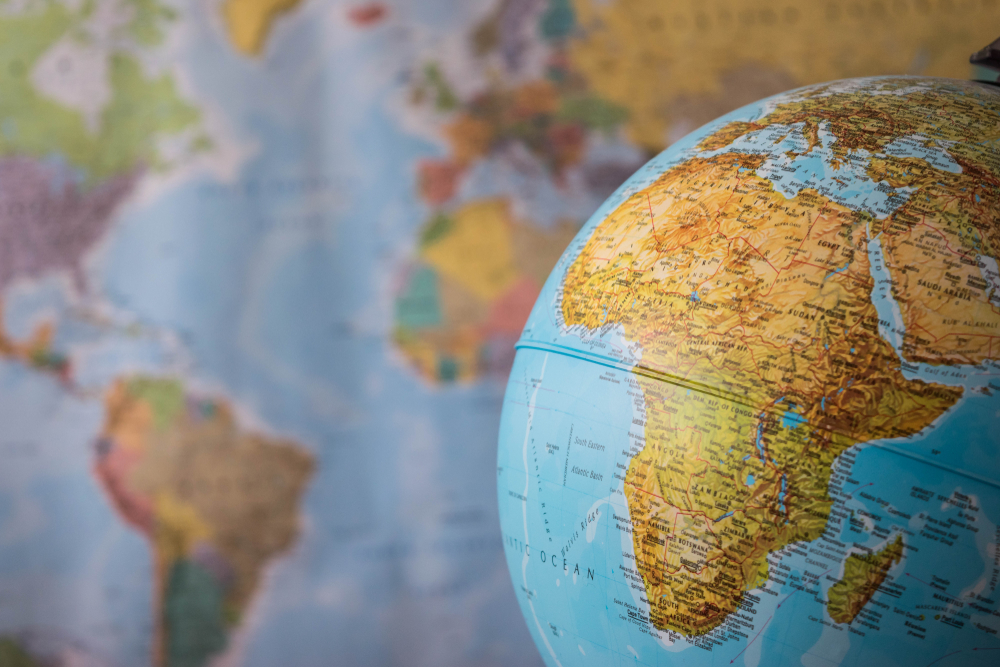When considering global regions for rapid growth in online betting and gaming, most thoughts are directed towards the burgeoning Latin American opportunity.
While Brazil and other Latin American countries do indeed pose a golden ticket for the industry, some have posited that Africa offers an equally exciting opportunity for those seeking global expansion.
Indeed, just a quick glance at population demographic charts shows the extraordinary growth that many African nations are experiencing and will continue to experience throughout the rest of this century. Nigeria will be the country of birth for around 10% of all babies born by 2050, for example.
Furthermore, many African countries are experiencing economic growth which is conducive to having a growing gaming market. As a result, gaming regulators are seeking to catch up with other global regions to attract operators and suppliers to their jurisdictions.
Off the back of this, CasinoBeats got together with Ivo Doroteia, CEO of Playbook Engineering and Dmitry Starostenkov, CEO of Evenbet Gaming to discuss the potential of African markets throughout 2024 and beyond.
CasinoBeats: Increasing numbers of regulators in Africa appear to be stepping up their bid to bring their regions in line and mirror activities in traditional jurisdictions of the rest of the world. But what progress is being made and how is this trickling down to suppliers invested in the continent and ultimately, the players?
Ivo Doroteia, CEO, Playbook Engineering: Having spent part of my life in Africa, I’m proud to see that the continent is experiencing a real boom at the moment, especially when it comes to sports betting with the Africa Cup of Nations ensuring a whirlwind start to 2024. It is a clever move by African regulators to mirror how established jurisdictions across the globe have regulated.
A lot of these territories have proven to be a success over the past decade and following in their footprints will strengthen the outlook in Africa as a whole. Progress is definitely being made thanks, in part, to Africa boasting the world’s youngest populations, so sports betting takes on a different context when compared with neighbouring continents. Suppliers are aware of the demographic in place and the region can look forward to major growth over the coming years.
CB: A recent move in Nigeria saw 43 betting and lottery operators having been singled out for unlicensed activity – how frequent are moves of this nature becoming across the many African markets?
ID: Grey markets and unlicensed operations aren’t just confined to Africa – they still maintain a place on the world stage. However, Africa unfortunately seems to be something of a hub for this at the moment and there needs to be a continent-wide clampdown. The quicker unlicensed activity is identified and targeted, the sooner regulators can get to work providing the various markets in Africa with the building blocks required for it to be a region for suppliers and operators to keep a closer eye on, and ultimately to take with the seriousness the market potential merits.
Dmitry Starostenkov, CEO, Evenbet: This particular case aligns with the findings we discovered in our recent e-book on 2023 trends in igaming. Regulation was cited as the number one pressing issue by 29% of companies that we interviewed, with 16% of respondents also highlighting it as a top trend for 2024.
Legislative frameworks for igaming in Africa are still evolving, and our report found that in such emerging markets, uncertainty around entry barriers, licence requirements, and acceptable business practices often exists. Companies will need to closely monitor developments and exercise caution when entering these complex, fluid regulatory environments across Africa.
CB: Do you believe that more regulators will follow suit in order to keep pace?

ID: There is definitely significant untapped potential in Africa, and I believe the region will follow a similar path to Latin America, eventually. Obviously, a lot of work needs to be done to eradicate any illegal activity but the continent as a whole is becoming more regulated, although it is going to be a long journey to achieve what LatAm seems to have done in recent years.
DS: I do – our research found that ambiguity in emerging markets is creating challenges around compliance and market viability. As internet penetration rises across Africa, generating rapid expansion of remote gambling, regulators are pressed to establish proper legislative oversight.
More authorities are likely to follow Nigeria’s lead in blacklisting or blocking unregulated sites, either pre-emptively or reactively. Stricter licensing protocols may also be implemented as expansion looks to be a key focus for many firms, so regulators will aim to constrain unchecked activity. However, heavy-handed measures could backfire, and African officials will need balanced policies that encourage licensed iGaming while sustaining healthy competition.
I expect more regulators to make moves to formalise the African igaming space. The future seems to be increased governance rather than an unchecked free-for-all.
CB: There has been specific activity reported in the French-speaking African countries and talk of how different it is to operate in these regions. How does the approach for suppliers compare from country to country?
ID: Malawi is a prime example of a French-speaking African country finding life easier than many of its neighbours. Betting launched here in 2015 and has shown rapid growth over the past nine years, with operators establishing a presence within this vast region. Thanks to success here, operators have been able to adopt a similar approach in other sub-Saharan countries, with English-speaking territories such as Ghana also carving out a corner of the market for themselves. So, whilst it has proven easier for French-speaking countries to operate, English regions are now familiarising themselves within the space.
DS: From what I understand, regulatory uncertainty is heightened in French-speaking nations, posing distinct compliance challenges for suppliers compared to more established markets. On top of this, there is a slower increase in internet penetration within Francophone African countries, with only certain countries such as Senegal reaching the continent average of 43%. Not only that, but slow growth with e-commerce and a lack of digital payment adoption has led to an increased cash flow in the black market.
English-speaking countries offer more regulatory familiarity, lowering some barriers, but across Africa, suppliers still need in-depth market knowledge. What works in Nigeria may not in Kenya. Understanding languages, cultures, digital infrastructure and gambling preferences is crucial for localisation.
CB: Where does Africa stand in 2023 – is it too large and diverse to consider as one and with it having been touted for many years as the next great area for opportunity, is this being realised?
ID: Governments across Africa are struggling to keep pace with the mass expansion of online gambling and it shows no signs of slowing down. It is a large and diverse continent and, whilst opportunities aren’t being fully realised at this time, I do believe that it will in the not too distant future. It should look at LatAm as a blueprint.
Although Africa is the second-largest continent in the world by size and population, it can take what individual markets in the LatAm region have done well and implement it into its future plans. Mirroring traditional jurisdictions has proven to be a good move thus far, so following in the footsteps and taking lessons learned from the experiences of a whole continent could propel Africa into the conversation for opportunity by 2025.
DS: Based on our insights, Africa represents a major area of future opportunity for the igaming industry, but the landscape across the continent is certainly complex and varied. The report highlights that many companies have their sights set on expansion into Africa due to the large addressable market and growing internet penetration in the region. With 24% of people we asked naming technology advancements as their top growing trend in the industry, it makes sense that there is growing interest in the market.
However, the findings also make it clear that Africa is far from a monolith. Regulatory approaches, digital infrastructure, culture and languages differ greatly across its many countries. Progress has certainly been made in key markets like Nigeria and South Africa where regulation is clearer, but in other nations, ambiguity persists. But, with strategies tailored to capitalise on each country’s unique dynamics, the opportunities across Africa seem closer than ever before.












